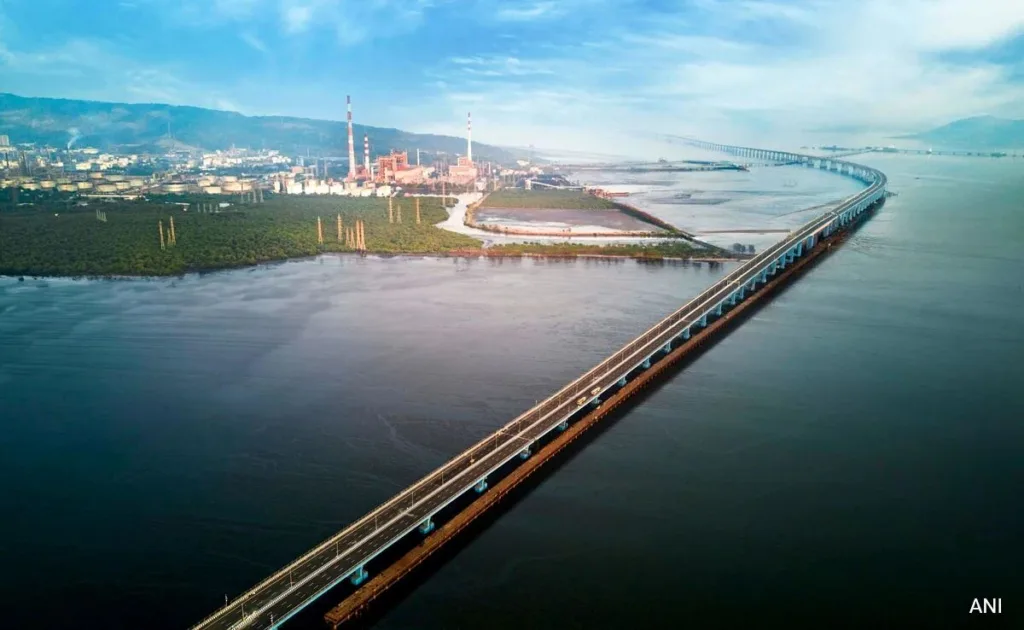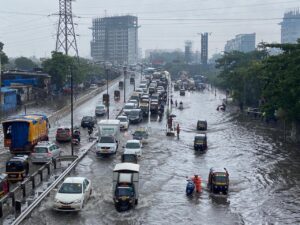Atal Setu: Transforming Mumbai’s travel landscape with technological marvels

Atal Setu: India's Longest Sea Bridge - 5 Key Facts
The Mumbai Trans Harbour Link (MTHL), affectionately known as Atal Setu, has officially become India’s longest sea bridge, stretching an impressive 22 kilometers. Beyond its record-breaking length, Atal Setu boasts several distinctive features that position it as a groundbreaking engineering marvel, poised to revolutionize Mumbai’s transportation system.
Connectivity Boost:
-A 21.8-km six-lane bridge with 16.5 km over the sea and 5.5 km on land.
-Enhances travel to Mumbai and Navi Mumbai International Airports.
-Reduces Mumbai to Pune, Goa, and South India travel time
Environmental Sustainability:
-Features river circulation rings to reduce sound and vibrations.
-Recognized by the Bombay Natural History Society for environmental sustainability.
Orthotropic Steel Deck (OSD):
Leveraging OSD technology expedites construction for longer spans, enhancing overall efficiency and durability.
Project Cost
Mumbai Trans Harbour Link is a Rs. 18,000-crore project that starts in Sewri, Mumbai and ends at Nhava Sheva, in Uran taluka, Raigad district.
No Cable Stayed Bridge:
A thoughtful design choice ensures the safety of flamingos at the nearby Sewri mudflats, avoiding cable-stayed sections.
Technical Specifications
Carriageway Width:
Each carriageway is a spacious 14.92 meters wide, facilitating smooth traffic flow.
Pile Foundation Depth:
The impressive pile foundation depth reaches a maximum of 47 meters.
Spans and Materials:
Large amounts of steel are used in the construction; it weighs 17 times as much as the Eiffel Tower and 500 Boeing aircraft.
Innovations and Efficiencies
Open Road Tolling System:
A satellite-based tolling system prevents bottlenecks, streamlining toll collection.
Travel Time Reduction:
Significantly reducing travel time between South Mumbai and Pavel, Atal Setu saves about an hour per trip.
Toll Rates:
Atal Setu implements structured toll rates, catering to different types of commuters. Atal Setu implements a structured toll system with specific rates: Rs. 250 for one-way, Rs. 375 for round trips, Rs. 625 for a day pass, and Rs. 12,500 for a monthly pass, streamlining travel costs for regular and occasional commuters.
Safety and Capacity
Prestressing Wire:
An impressive 48,000 km of prestressing wire is used, circling the Earth’s diameter four times.
Speed Limit and Vehicle Restrictions:
Enforcing a speed limit and specific restrictions for different vehicle types ensures safety.
Commuter Capacity:
With six lanes, the MTHL accommodates 70,000 commuters daily at speeds up to 100 kmph.
Transforming Mumbai’s Travel Landscape
Beyond being a bridge, Atal Setu reshapes Mumbai’s travel pattern, enhancing competitiveness and symbolizing India’s progress in infrastructure development. Its key features set a new standard in urban infrastructure, blending technological innovation with environmental considerations.











